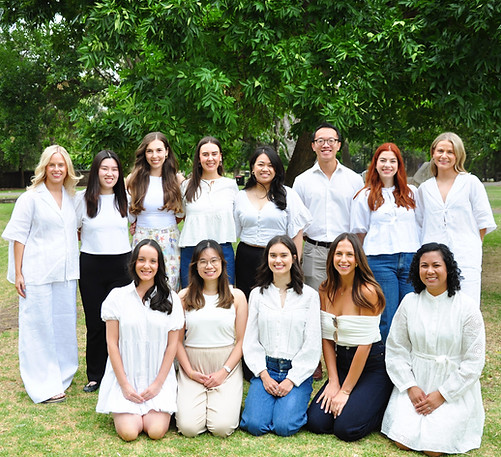About us
At Nurture Allied Health SA, we are dedicated to providing evidence-based, trauma-informed, and neuroaffirming Speech Pathology and Occupational Therapy services to children in Adelaide, South Australia.
Our team is committed to improving the well-being of our clients through our specialized health services that are focused on the Adelaide area, including the northern eastern suburbs of Adelaide. We have a strong focus on providing compassionate and inclusive services that are respectful, culturally competent, trauma-sensitive, and empathetic.

Our approach

The Nurture Team aim to presume competence, respect the child's sensory differences, and body autonomy. We respect Neurodiversity and follow recommendations given by the autistic community. Neurodiversity affirming approaches are at the core of what we do. We are always learning more about the neurodiversity movement and changing the way we work to align better with neurodiversity affirming practices and be a strong ally for neurodivergents. We do not use/engage in compliance training in therapy as it has been reported by the autistic community that it is trauma-inducing (often leading to PTSD).
We adopt strength-based and trauma-informed approaches and reporting, and work on neurodiversity affirming goals (such as self-advocacy).
Nurture icons
Our hands symbolize the heart of our approach—child-led, hands-on support that fosters connection and collaboration. We work hand-in-hand with children, young adults, and their families to create a strong sense of community, ensuring everyone feels heard, valued, and supported in their journey.
The stars shine brightly as a beacon of positivity and affirmation. We celebrate individuality and embrace each person’s unique identity, guiding them toward their goals with encouragement and a strengths-based approach that uplifts and empowers.
The butterfly represents the incredible transformation that happens when empowerment and nurturing intersect. We support growth and development in ways that foster confidence, resilience, and independence, helping every individual spread their wings and soar.
The heart reflects our genuine care, empathy, and affirming approach. At Nurture Allied Health SA, we prioritize emotional connection and support, creating a safe, inclusive space where everyone feels respected, valued, and understood
Leaves symbolize growth and the care we invest in every person we support. Through nurturing, evidence-based practices, we cultivate an environment where potential flourishes, ensuring progress is meaningful and sustainable.
The pathway represents the journey we embark on together, guided by the principles of inclusion and child-led practice. Every step is meaningful, intentional, and designed to honor the unique path of each individual, celebrating progress in all its forms.
The Nurture Team
We are a neurodivergent-led neurodiverse allied health team providing neuroaffirming services which sets us apart in the field of pediatric speech therapy and occupational therapy.
We keep ourselves up to date with the recommendations made by the neurodivergent community and also guide our practice with our lived experiences as neurodivergent.

